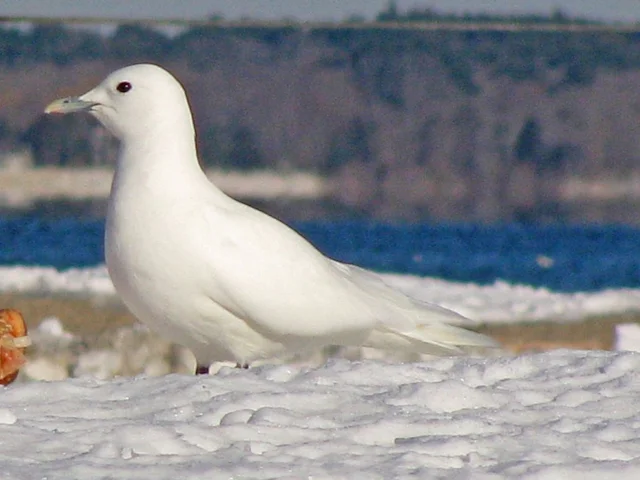Oil company Shell stops offshore drilling in Canadian Arctic
8bcdb843-12f5-4a13-94a5-28e8c649e0e6

The Worldwide Fund for Nature (WWF) has welcomed Shell Canada's decision to relinquish offshore oil exploration permits in Arctic Canada.
The potential drilling area was located in Canada's high Arctic, in the 'Last Ice Area' where summer sea ice is projected to persist when it is gone in much of the rest of the Arctic region. The leases were also to be within a potential protected area boundary put forward by local Inuit people. Inuit organisations and WWF-Canada have called for the region covered by the relinquished permits to be included in the National Marine Conservation Area (NMCA) designation as it is an important upwelling area with nutrient-rich water.
WWF-UK Polar Programme Manager Rod Dowie said: “Protecting this part of the Arctic’s Last Ice Area is good news for the Arctic people on World Ocean Day, not to mention the 70,000 Narwhal that also live there.” Around 70,000 Narwhals – three quarters of the global population – return often to favoured locations within the area.
The permits were granted more than 40 years ago and recently disputed in a lawsuit by WWF-Canada; Shell has now voluntarily given its rights to prospect for oil and drill in the region. By the renunciation of these permits yesterday, the most significant threat to the wildlife and people in the Lancaster Sound region will be eliminated. The region is also important for Polar Bears, Beluga and Bowhead Whales, as well as declining seabirds such as Kittiwake, Razorbill and Ivory Gull.
Lancaster Sound is at the southern edge of the Last Ice Area, the only Arctic region expected to retain its summer sea ice until 2050 as the world continues to warm, making it a critically important zone for the future of ice-dependent life.
The proposed NMCA was initiated in response to an exploratory oil well proposal and has been under consideration by the federal government since the early 1970s.
The stage will now be set for the Government of Canada to protect a region larger than currently planned, as advocated by Inuit groups and WWF.
The potential drilling area was located in Canada's high Arctic, in the 'Last Ice Area' where summer sea ice is projected to persist when it is gone in much of the rest of the Arctic region. The leases were also to be within a potential protected area boundary put forward by local Inuit people. Inuit organisations and WWF-Canada have called for the region covered by the relinquished permits to be included in the National Marine Conservation Area (NMCA) designation as it is an important upwelling area with nutrient-rich water.
WWF-UK Polar Programme Manager Rod Dowie said: “Protecting this part of the Arctic’s Last Ice Area is good news for the Arctic people on World Ocean Day, not to mention the 70,000 Narwhal that also live there.” Around 70,000 Narwhals – three quarters of the global population – return often to favoured locations within the area.
The permits were granted more than 40 years ago and recently disputed in a lawsuit by WWF-Canada; Shell has now voluntarily given its rights to prospect for oil and drill in the region. By the renunciation of these permits yesterday, the most significant threat to the wildlife and people in the Lancaster Sound region will be eliminated. The region is also important for Polar Bears, Beluga and Bowhead Whales, as well as declining seabirds such as Kittiwake, Razorbill and Ivory Gull.
Lancaster Sound is at the southern edge of the Last Ice Area, the only Arctic region expected to retain its summer sea ice until 2050 as the world continues to warm, making it a critically important zone for the future of ice-dependent life.
The proposed NMCA was initiated in response to an exploratory oil well proposal and has been under consideration by the federal government since the early 1970s.
The stage will now be set for the Government of Canada to protect a region larger than currently planned, as advocated by Inuit groups and WWF.

